What do think of when you hear the words ‘personal brand?’
Do you think of the Kardashians?
Or just maybe you think of those corny George Clooney Nespresso ads.
Here’s the deal…
Personal brands aren’t just for celebrities – they’re for all professionals too.
In fact, if you want to position yourself as an expert authority in your market, niche, or industry then there’s no way around it – you NEED to build your brand.
And here’s the really cool thing…
You can start building your brand TODAY! You don’t have to wait until you’re a 50 year old CEO with a big portfolio.
No, you can take your ideas, beliefs, values, expertise, knowledge, skills, and your story – and start building a popular and lucrative brand right now.
In this article you’re going to get a crash course in how to strategically develop, grow, and monetise your own brand.
Let’s dive in…
Building A Personal Brand Is The Best Way To Position Your Online Reputation:
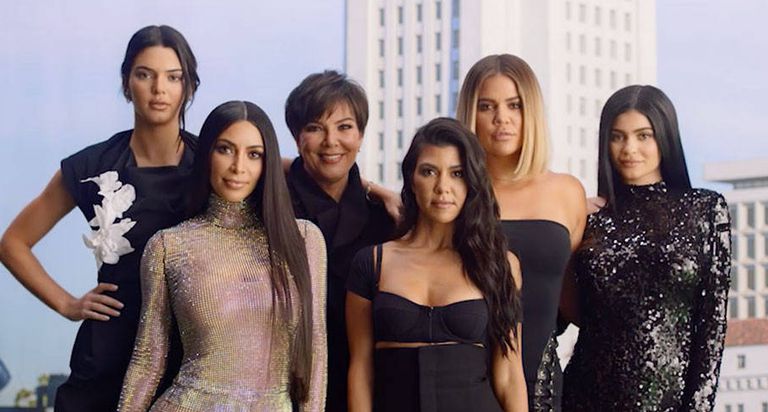
An article on branding wouldn’t be complete without the Kardashians!
Get this…
Now more than ever companies, hiring managers, and recruiters will GOOGLE you before hiring you for a job.
And if you’ve already built a small following and personal brand in your industry, then you’ll INSTANTLY position yourself as a hot candidate for jobs.
Because according to brand expert Ryan Erskine:
- When brand messages are shared by employees on social media, they get 561% more reach than the same messages shared by the brand’s social media channels
- Brand messages are re-shared 24 times more frequently when posted by an employee versus the brand’s social media channels
So personal branding can give you massive leverage when landing your next dream job.
Here’s some more stats that show how branding can affect your recruitment results…
- Seventy-five percent of HR departments are required to search job applicants online
- Eighty-five percent of U.S. recruiters and HR professionals say that an employee’s online reputation influences their hiring decisions at least to some extent.
NOTE: You can find more great stats in Ryan Erskine’s article on Entrepreneur.
Okay so now you’ve seen some figures that make a pretty persuasive case for personal branding.
Let’s dive deeper into what your personal brand is, and what it would look like!
What Is A Personal Brand?
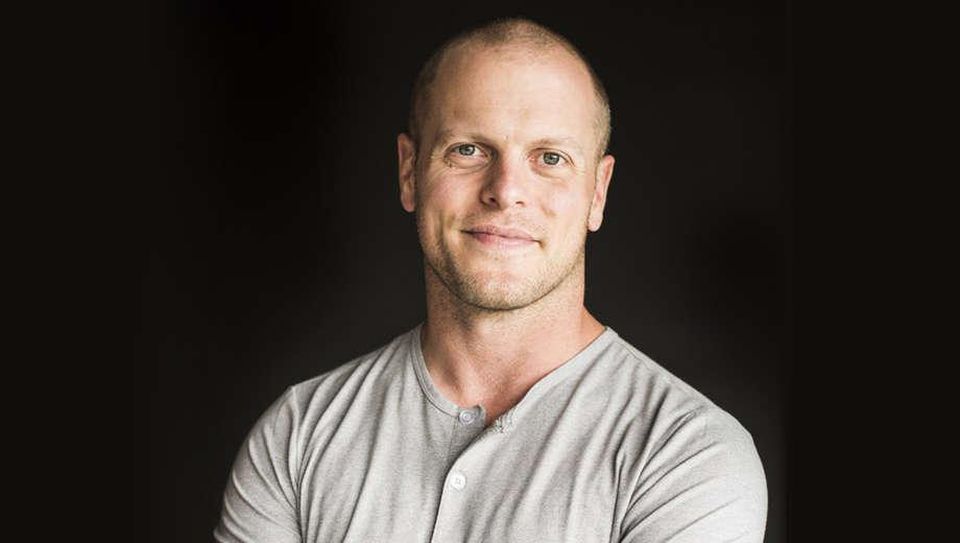
Tim Ferriss is someone who’s built a massive personal brand through content
Very simply, a personal brand is your reputation.
It’s what you’re known for, what you stand for. It’s your unique selling position (USP). It’s what sets YOU apart from the pack.
It’s what people think about when they think of you.
Powerful personal brands are made up of a couple of key ingredients such as:
- A set of values & beliefs
- A stance for something (and against other things)
- An origin story
- Your unique skills, expertise, experience, and talents
- They are usually an expert on a certain topic
- They produce content
Like I just mentioned, a personal brand (and you) need to stand for something.
And by standing for something, you naturally stand AGAINST something.
Eg: If you stand for democracy, then you stand against totalitarianism.
This ‘picking a side’ creates polarisation. This means that your brand can polarise people into two groups: people that resonate with you, and people that don’t. .
Take the following people for example:
– Howard Stern
– Bill O’Reilly
– Kim Kardashian
What do they have in common?
A) People either love them or HATE them
B) They are often controversial
C) They are polarising with their stances & behaviour
D) They exist in the public sphere
E) They DOMINATE their channels (TV, Radio, Social Media)
F) They produce content that feeds their brand
G) They are incredibly wealthy (because they are able to monetise the attention surrounding them)
But let me VERY clear – I’m not saying you need to be controversial, or polarising. In fact, trying to be controversial for the sake of it is a very BAD idea.
The people I listed above are rare and extreme examples.
However, they embody the core principles we’re discussing here.
Let’s keep going…
When’s The Right Time To Start Building Your Personal Brand?

You never know when your personal brand could come in handy…
Now is the best time!
But here’s an important point – if you’re not an expert, don’t pretend that you are.
The most powerful personal brands are authentic, genuine. and congruent.
It’s very trendy these days to be a self professing “success guru” online – which nicely paves the way for people like you who aren’t full of B.S.
So here’s the deal…
If you’ve only been working in a full time job for 19 months, then you’re not going to be an expert in your field yet.
So there’s no use pretending that you are.
However, you might have a great understanding of the fundamentals. And you might have several experiences, clients, or projects to draw upon and discuss.
This is fertile soil to start growing your personal brand.
I heard a great take on this from Gary Vaynerchuk who’s the CEO and founder of VaynerMedia (a world class digital agency).
Gary (who’s has built a very successful personal brand of his own) was asked how to build your brand if you’re just starting out?
His answer was: “Document, don’t create.”
In essence, he was saying if you haven’t “made it” yet – don’t pretend that you have.
Instead, you can build an incredible brand by creating CONTENT that DOCUMENTS your journey to success.
Does this make sense?
I have a similar strategy that I call “Joining The Conversation.”
Joining The Conversation means that you don’t have to be a CEO or expert to create content around a topic – you just need to have an opinion.
And with that opinion you join the conversation that’s happening in the market.
You become a student of that market, and a contributor.
NOTE: I go into more detail on this technique (and MORE) in my Career Mastery Platinum Program!
Think about it…
Some of the biggest personal brands in any sport aren’t just the players, but the COMMENTATORS.
So you can build your brand as a commentator in you field first, and then as an expert later on.
Your Brand Can Create New Revenue Streams
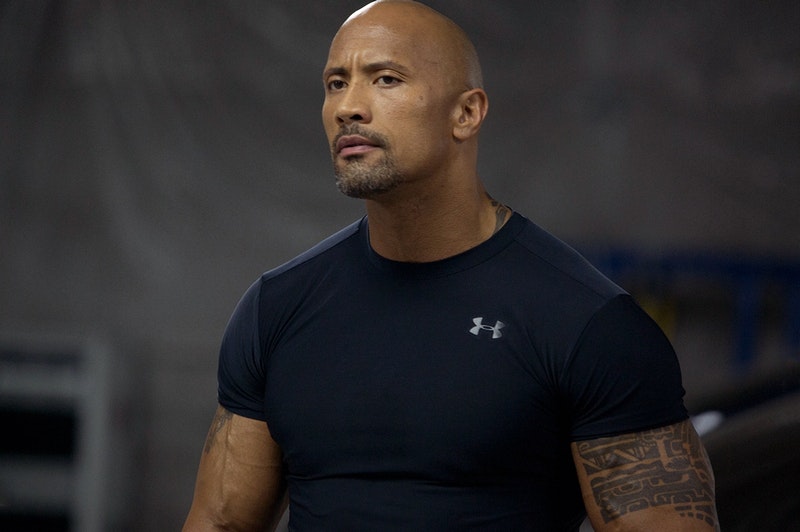
The Rock has been a pro wrestler, an actor, a fitness personality, and a movie producer!
When you’re an employee there’s only one way you make money…
And that’s with a salary.
But if you build a personal brand that has authority and is trusted – AND you build a following around it…
Then you have a huge opportunity to monetise your brand (in MORE ways than one).
Personal brands attract attention. They’re like magnets. And if you’re putting out content then people will be constantly drawn to you.
So how do you attract attention (the right way)?
Well the easiest and most effective way is to create content (public speaking, ebooks, blogs, podcasts, articles, LinkedIn posts).
But once you build your following, how do you monetise?
Well thanks to the internet there’s actually a whole multitude of ways you can go about it.
And the really cool thing is that many monetisation strategies actually continue to grow your brand at the same time.
For example, you could write a book around your unique knowledge or skill-set.
There’s a reason why business books continue to perform well in the New York Times bestseller list – and that’s because doing so allows CEO’s & business owners to:
- Spread awareness about their brand or business
- Increase visibility in their marketplace
- Position themselves as experts in their field
- Make a bit of money on the side from book sales
- Get asked to speak at events (which can be VERY lucrative)
- Get featured and interviewed on mainstream media outlets
Do you see a familiar trend here?
Brand building activities (especially ones that pay well) actually continue to feed and build your brand.
Overtime it has a compound effect.
But if you build a large following either through your website, your email list, or on social media, you put yourself in a great position to monetise.
But okay, HOW do you actually do it? Well here’s just a few ways:
- Write a book (which you can self publish on Kindle)
- Create paid programs and courses
- Offer paid public speaking gigs
- Become an affiliate – this is where you sell other people’s products or services to your audience and take a commission
- Offer high ticket professional services or consulting
- Do group or one-on-one coaching
- Create a paid monthly newsletter
But if you looked at that list and felt overwhelmed I wouldn’t blame you.
After all, who has time to right a book?
I suggest picking one or two content options, and then later aiming to specialise in one or two paid strategies.
For example, you could start by writing blogs on your website, as well as writing posts on LinkedIn for content.
And for monetisation you could focus on paid consulting and public speaking.
Brands Are People & Opportunity Magnets
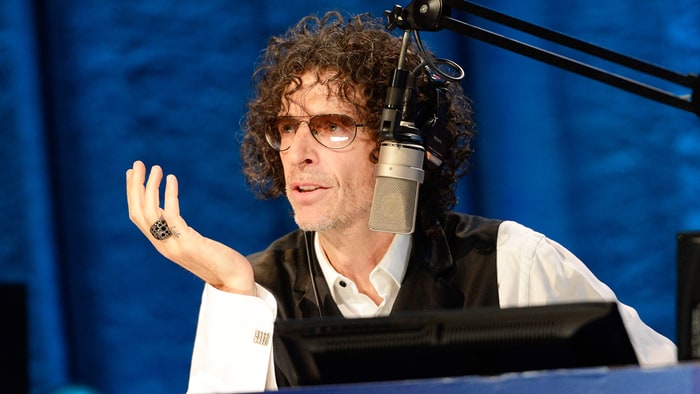
Love him or hate him, the man has a powerful personal brand
People want to learn from and associate themselves with the BEST.
If you position yourself as an authority then people will seek out your advice, knowledge, and counsel.
And influential people, companies, and institutions will want to align with you.
There’s a great quote from Dan Kennedy, who has a huge personal brand in the copywriting and marketing field in which I work.
The quote reads:
“The higher the income, the more the person is paid for who they are, rather than what they do.”
To cap off this section I want you to understand this…
The goal of personal branding is to turn your NAME into its own currency.
A Personal Brand Can Be Scaled & Grown

His brand, like his recipes, is international
If you’re a business owner, or employee, or solo-preneur, it can be hard to get your name out there.
Sure, you can network with people in your industry.
And you can develop a good reputation within your company.
But when you decide to transform your reputation into a brand, your name can transcend these local relationships.
And you can start to build a brand that’s recognised globally.
But first you need to build what I call Brand Machines.
These are the vehicles through which people learn about you, as well as build a relationship with you.
We’ve already talked about a couple of examples of Brand Machines, which include:
- Your website or blog
- Your social media (Facebook, Twitter, Youtube, Instagram, LinkedIn, Snapchat)
- Books
- Public speaking
- Your monthly newsletter
- TV
- Radio
The biggest personal brands in the world will be across almost all of these channels.
Brand Machines are media platforms where you can distribute content and build awareness for your brand.
But to get started you literally only need to use one or two of these platforms.
I suggest building a simple WordPress website – this will be your central hub.
And picking one or two social media channels (such as Twitter & LinkedIn) and sharing content there too.
But here’s the coolest part…
When you have these Brand Machines, there’s literally NO LIMIT to how many people can learn about you and your brand.
Word of mouth, SEO (search engine optimization), and paid traffic can drive consistent numbers of new people to your site.
And these people can engage with and share your content across their own platforms (which in turn will grow your audience over time).
What’s The Easiest Way To Get Started?
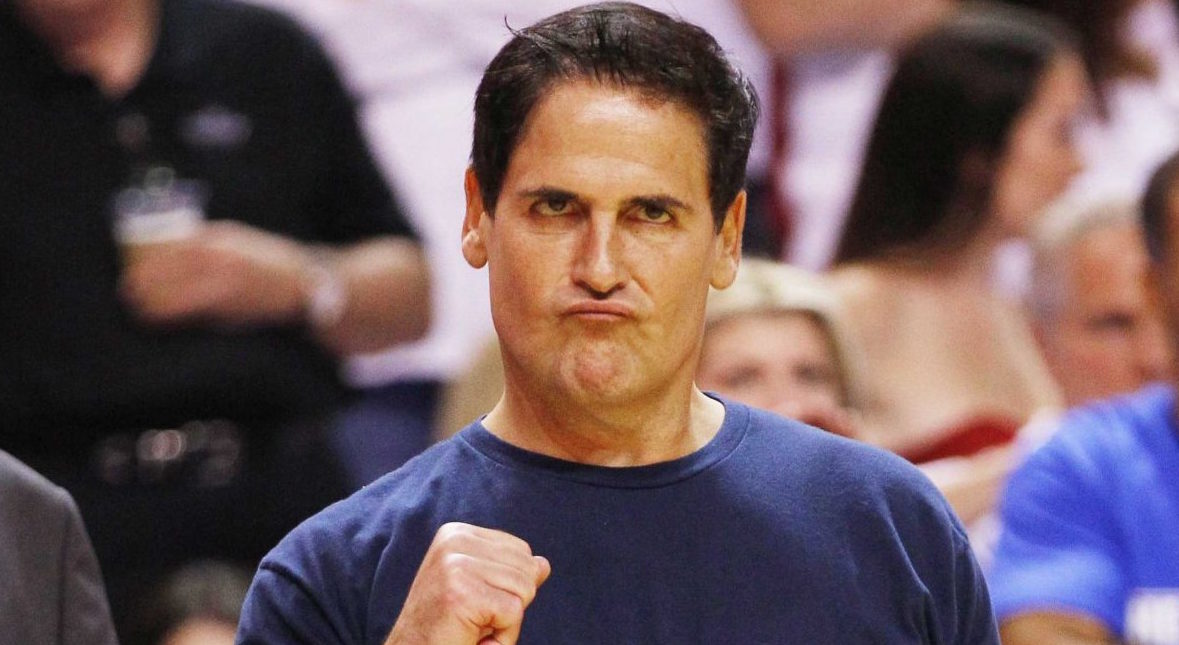
Billionaire, Investor, Shark Tanker, and owner of the Dallas Mavericks
Like I’ve outlined above, the barrier to entry is VERY low.
The simplest, easiest way to get started with your brand is by sharing content on social media.
You can create a short and engaging post about your niche and share it on LinkedIn, Twitter and Facebook.
The next step after this is to create a WordPress website.
Start with a basic blog theme and begin writing articles – then share these articles on your social media.
But remember…
The content needs to be awesome! It needs to be engaging, entertaining, and it needs to offer value.
As you grow your brand and evolve your career you can start becoming more sophisticated.
You can develop a better website, start public speaking. And maybe even begin writing books and training programs.
It depends on your unique career goals and career strategy.
For example, the goal of your personal brand might be to attract more clients into your business.
Or it might be to create a side income that compliments your full time salary.
Bringing It All Together…
So do you feel ready and excited to start building your brand?
I hope you’ve come away from this article with the feeling that you can get out there and start building content – no matter what stage of your career you’re at.
As always, feel free to leave a comment below with any feedback or questions!
You Might Also Like:
- How To Land Your Dream Job Fast: 5 Simple Steps To Launching Your Dream Career!
- How To Have Rock Solid Confidence In Job Interviews
References:
- The Career Conversation: How To Build A Brand Like A Kardashian
- Entrepreneur: 22 Statistics That Prove The Value Of Personal Branding
- MSL Group: Social Employee Advocacy
- Cross-Tab: Online Reputation In A Connected World
- Gary Vaynerchuk’s Youtube Channel
- Vaynermedia Website
- Dan Kennedy’s website
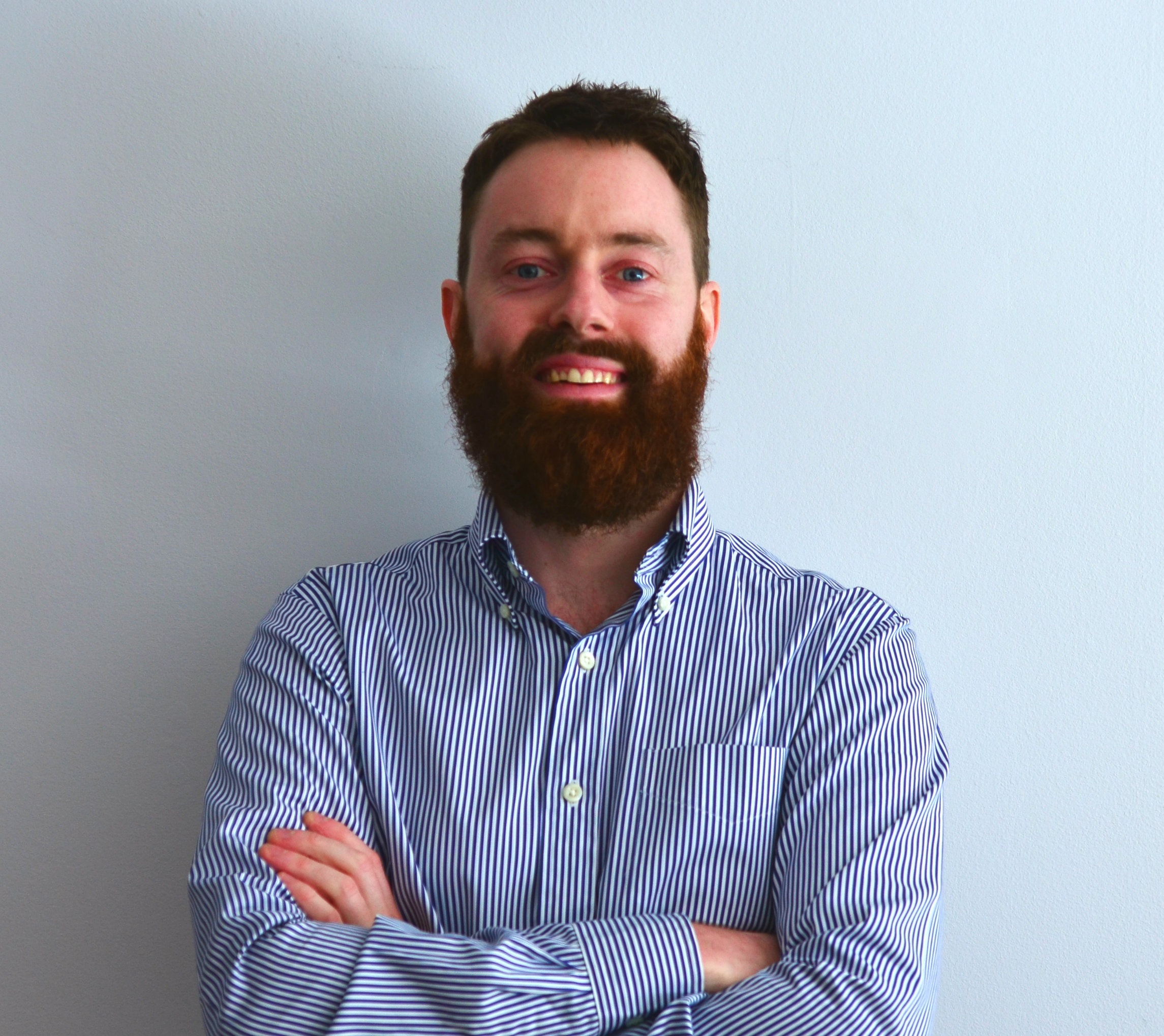
Will Vaughan is the Founder & CEO of Your Career Mastery. He’s dedicated to helping young professionals discover and land the job of their dreams using a mix of proven strategies, tips, tools, and mindsets. He currently works as a Content & SEO manager for a 100 million dollar tech company in Melbourne, Australia.

